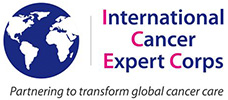Overview
The second ICEC Essential News Letter of 2016 provides updates from activities over the last four months. Having made substantial progress on internal organizational structure and procedures we are beginning to provide support for ICEC Experts. We are now reaching out to foundations and holding informational meetings to present the ICEC vision and unique approach to addressing the need to improve global cancer care. We continue to make presentations at professional meetings and to have publications in the peer-reviewed literature. Enthusiasm and interest remain high. The scope of the gap in cancer care to the underserved remains daunting both globally and within health-disparities populations in resource-rich countries. Arising in the news and political arenas over the last year are global issues of emigration that have produced a frightening wave of xenophobia. This makes the need for the ICEC global partnership for people willing to partner with one another even more important both for the obvious care needed and as a counterpoint to cross-cultural fear and animosity. Given the impact of cancer on everyone everywhere, there are few more important common problems to serve as a counter-force to the negative attitudes and to demonstrate that mutual assistance and caring promote health, understanding and partnerships.
General Update
June 2016
– Our “all-volunteer” staff is providing extensive expertise: Costing out the hours of volunteerism we have had donated over the first three months of 2016, using the NIH FTE rate not necessarily the actual salaries which would be greater, amounts to approximately $82,000. We are receiving, and will continue to receive, significant in-kind support, however, with our substantial progress it is a critical time for ICEC to bring on a paid staff and partial support of our mentoring activities. Development is discussed below.
– Sustainability sets our model apart: A key underpinning of healthcare is a sustainable infrastructure. We view cancer care as a critical component in that it requires expertise in general medicine, infectious diseases, pathology, surgery, diagnostic and clinical pathology and diagnostic imaging and the physical facility (center)- with radiation and medical oncology- in which to deliver the treatment. The global efforts focusing on infectious diseases are spectacular examples of what can be accomplished with investment and visionary leadership. Changing focus as one problem is eradicated and another becomes the target makes sense, but this has the unfortunate tendency for physical centers to close a few years after opening. ICEC is the next step in addressing global health as it aims to provide sustainability in the form of mentored experts who not only remain in country but who have the infrastructure to detect and respond to outbreaks, rather than needing to reestablish teams and medical facilities. Margaret Chan, the Director-General of the World Health Organization, has pointed out that the absence of healthcare infrastructure is one of the critical gaps in detection and response to outbreaks such as Ebola. “The world is ill-prepared. We need national and local capacity,”[1]. So, ICEC is both a natural partner with and a next step beyond the investment in infectious diseases, including those that cause cancer such as HPV and hepatitis virus.
– ICEC is a “start-up”: While the current partnerships among academic centers in resource-rich countries and nascent centers in Low- and Middle-Income Countries (LMICs) remain inspirational examples of what can be attempted, the enormous growing burden of cancer requires an innovative approach, large enough to effectively address the problem. In that perspective, ICEC is more akin to a start-up company in which we have a highly talented team of experts with the skills and creativity to tackle this problem globally. With a representative metric of being able to commission one well-functioning radiation therapy unit a week, an important centerpiece for cancer care, it will take 100 years to fill the current gap of 5000 linear accelerators. Thus, our model of working with existing programs but bringing together a formal global partnership is the first of its kind to address the problem at the scope needed. Transformational thinking, vision and action like this are necessary.

